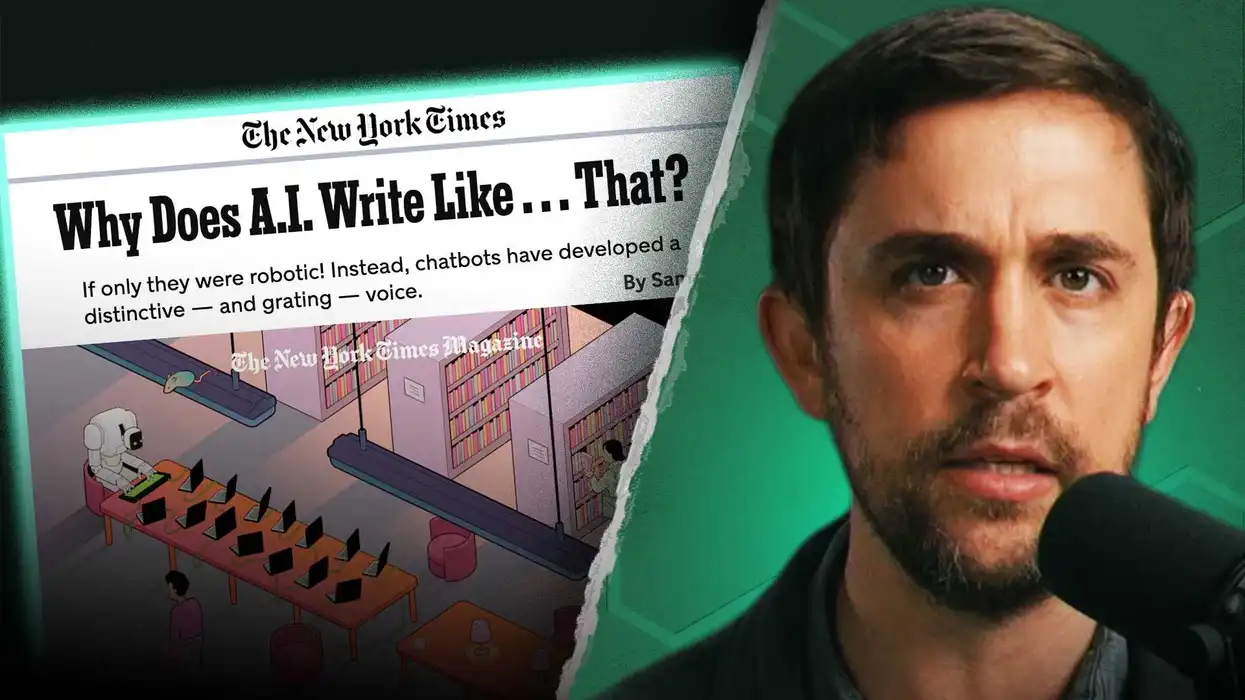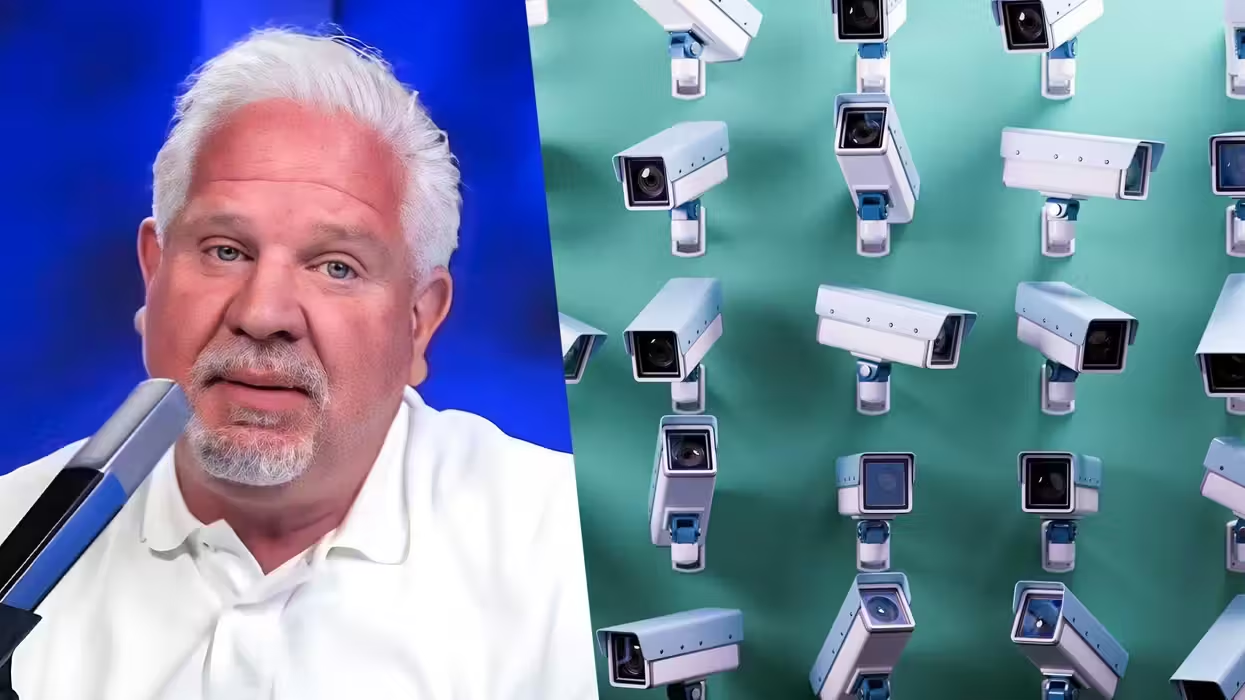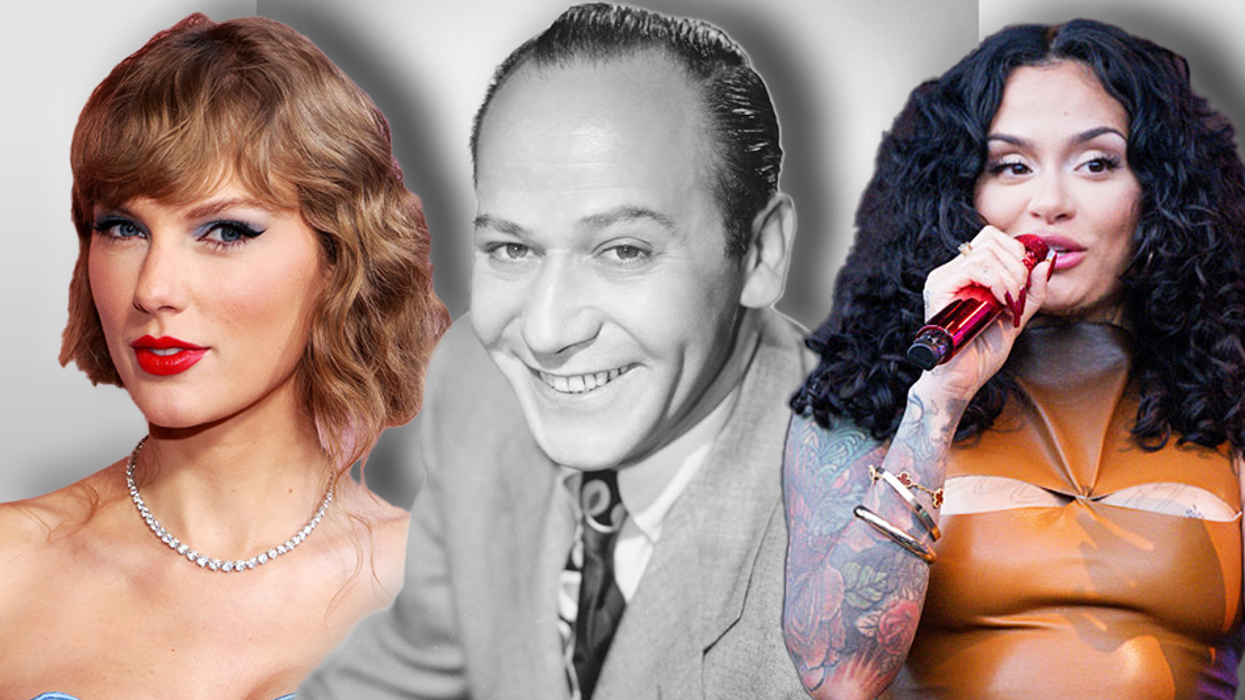
© 2025 Blaze Media LLC. All rights reserved.
Shot down in flames.
NEW YORK (TheBlaze/AP) – J.C. Penney ousted Ron Johnson as CEO on Monday after his turnaround strategy failed to win over shoppers, making his short-lived tenure with the retail giant one of the biggest flameouts in corporate America.
The former Apple executive was hailed as a big thinker when he was hired by the ailing department store chain but his radical moves ended up alienating shoppers, sent sales plunging, and left the company in an even worse situation.
He lasted 17 months.
 Sorry, Today Show, but that's the wrong Ron Johnson. That's Sen. Ron Johnson from Wisconsin. (Screen grab.)
Sorry, Today Show, but that's the wrong Ron Johnson. That's Sen. Ron Johnson from Wisconsin. (Screen grab.)
But Johnson isn't the only executive to be pushed out after failing to live up to big expectations. Here's a look at some major ousters in recent times.
LEO APOTHEKER, HEWLETT PACKARD
 Getty Images.
Getty Images.
When HP hired Apotheker in November 2010, it was seen as an aggressive push by the company into the software business. But many analysts mocked the choice, considering that Apotheker had just been forced out of his previous job as CEO of German business software maker SAP AG following ill-timed price hikes and widespread employee dissatisfaction.
Apotheker was supposed to be a steady hand to steer HP out of a tumultuous time but his strategic decisions were drastic and did little to inspire confidence. He was doomed by disappointing earnings and a fumbled announcement that the company's personal computer division was for sale. Even as he struggled, Apotheker complained that HP suffered from years of under-investment by his predecessor, Mark Hurd.
Apotheker also was one of the chief backers of HP's acquisition of British software company Autonomy Corp. HP paid $10 billion for Autonomy, but later said it was deceived by improper accounting and overpaid.
After just 11 months, Apotheker was forced out and replaced by former eBay CEO Meg Whitman.
CHARLES CONAWAY, KMART
 Getty Images.
Getty Images.
Conaway had won many fans on Wall Street as the No. 2 executive at CVS, where he helped build the drugstore chain into an industry powerhouse. When he was hired by Kmart in 2000, Conaway inherited a company with a long list of entrenched problems, including outdated technology and drab stores.
Analysts say Conaway made strategic mistakes, such as trying to compete with Wal-Mart on price and focusing on exceedingly cheap groceries rather than on its exclusive Martha Stewart brand. In early 2002, Kmart filed for Chapter 11 bankruptcy, and Conaway resigned soon after.
Conaway also faced accusations that he misled investors about Kmart's financial problems before the bankruptcy filing.
The bankruptcy led to Kmart coming under the control of Edward Lampert, a billionaire investor. Lampert later engineered the acquisition of Sears, Roebuck & Co., combining the companies into Sears Holding Corp.
BOB NARDELLI, CHRYSLER
 Getty Images.
Getty Images.
Nardelli was hailed as an outsider who could help save the U.S. auto industry by private equity firm Cerberus Capital Management, which installed him as the head of Chrysler in August 2007. But Nardelli, who spent most of his career in the executive ranks at GE before leaving to run Home Depot, had no experience in the complex business of auto manufacturing, and it showed.
Instead of investing to improve Chrysler's substandard lineup, Nardelli focused on cutting jobs and closing plants. He alienated suppliers and dealers, who revolted when Chrysler announced plans to close dealerships and stopped financing leases. And he was gaffe-prone, at one point mistakenly telling Wisconsin's governor that an engine plant in his state would remain open.
By the time the financial crisis hit in the fall of 2008, Chrysler was in serious trouble. Nardelli testified before Congress and obtained loans to help the company survive, but it was too late. Chrysler filed for bankruptcy in April 2009. When Chrysler exited bankruptcy that June, Nardelli was out and Fiat CEO Sergio Marchionne took over.
CRAIG HERKERT, SUPERVALU
 Getty Images.
Getty Images.
The grocery store operator brought in Herkert in 2009 with the hopes that the high-ranking former Wal-Mart executive could spark a turnaround for its struggling fortunes. Supervalu, which was one of the country's biggest grocery store operators at the time, was struggling with growing competition at big-box retailers, drugstores and dollar stores.
Under his tenure, Herkert tried positioning Supervalu as a neighborhood store and emphasized low prices. But sales and profitability kept sliding and last summer, the company suspended its dividend and announced plans to potentially put itself up for sale. A few weeks later, Herkert was out.
In January, the company announced that it was selling five of its major chains and focusing on its Save-A-Lot discount stores and smaller regional chains.
KEVIN ROLLINS, DELL
 Getty Images.
Getty Images.
Rollins joined Dell in 1996 and held a variety of roles before becoming CEO in 2004, including chief operating officer, vice chairman and president of Dell Americas.
The company had been struggling with a market glut of low-cost, low-profit PCs and weaker-than-anticipated sales of its pricier, more lucrative desktops and notebooks. In 2006, it lost its No. 1 position in the industry to rival Hewlett-Packard Co.
In addition to disappointing earnings, Dell had recalled more than 4 million potentially flammable notebook batteries made by Sony Corp. in August 2006. The company's accounting practices had come under federal scrutiny as well.
The key parallel between Rollins and Penney's Johnson may have been overpromising. Rollins took the reins of a company doing a little more than $40 billion a year in business and painted pictures of bumping that to $80 billion - which Dell has still not approached.
Rollins stepped down in early 2007. Founder Michael Dell took the CEO job back.
--
Follow Becket Adams (@BecketAdams) on Twitter
Featured image warhistoryonline.com
Want to leave a tip?
We answer to you. Help keep our content free of advertisers and big tech censorship by leaving a tip today.
Want to join the conversation?
Already a subscriber?
more stories
Sign up for the Blaze newsletter
By signing up, you agree to our Privacy Policy and Terms of Use, and agree to receive content that may sometimes include advertisements. You may opt out at any time.
Related Content
© 2025 Blaze Media LLC. All rights reserved.
Get the stories that matter most delivered directly to your inbox.
By signing up, you agree to our Privacy Policy and Terms of Use, and agree to receive content that may sometimes include advertisements. You may opt out at any time.






